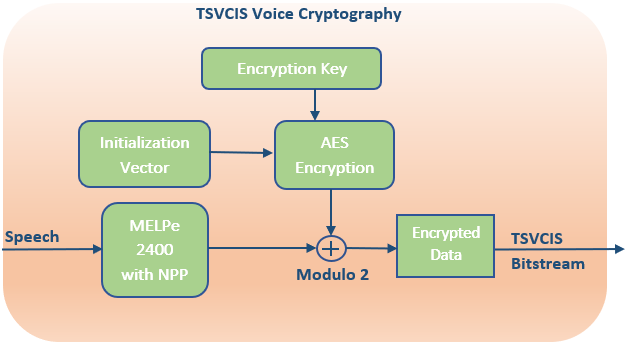TSVCIS Cryptographic Features
In military communication devices, securing the data from adversary eavesdroppers is of utmost importance. The Tactical Secure Voice Cryptographic Interoperability Specification (TSVCIS) was written to follow common practices in cryptography for robust security and interoperability of next generation tactical secure voice radios. TSVCIS uses NSA’s Suite A and Commercial National Security Algorithm (CNSA) suite for encryption and over-the-air distribution (OTAD) key management to adhere to NSA’s Cryptographic Modernization requirements.
The implementation of Suite A algorithms is classified and use is reserved for protecting the most sensitive information. CNSA AES algorithms, which are the replacement to Suite B algorithms, are unclassified but are considered secure for top secret communication levels.
Most tactical secure voice communication devices are half-duplex, with short bursts of data. Therefore, procedures of the cryptographic system were design to minimized the latency of achieving synchronization between the transmitter and receiver.
TSVCIS has left into provisions for the ability to expand to newer encryption standards as demands change. For example, the NSA is developing a new set of standards to include quantum resistant algorithms. The cryptographic indicator field that is part of the Basic IV message specifies the type of encryption used.
Platforms
VOCAL Technologies, Ltd. TSVCIS software includes BCH and Hamming FEC, along with MELPe and VDR vocoder software. Please contact us to learn more about our TSVCIS and RoIP software solutions.
| Processors | Operating Systems |
|---|---|
|
|
